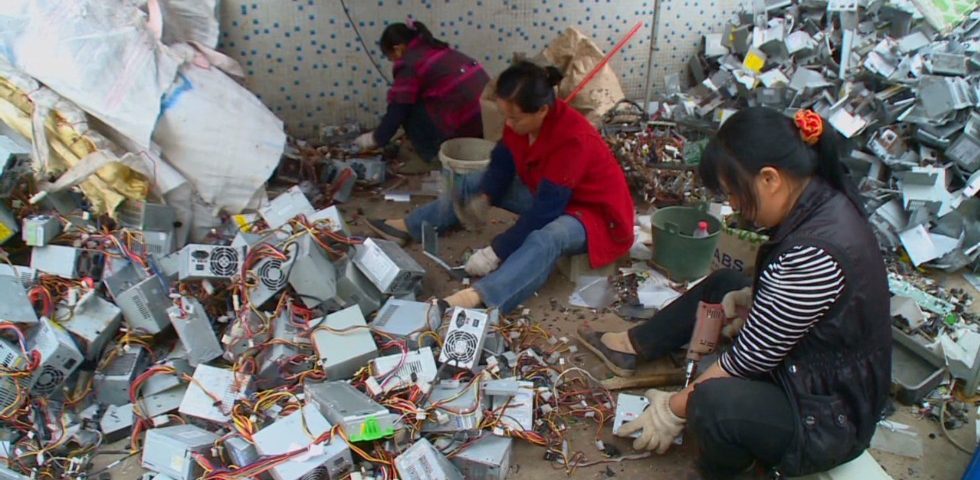
.
Impacts of China’s Ban on Solid Wastes Imports

Every year rich countries of the world generate more wastes than they can handle. Landfills in the USA, Canada, Japan and Western European countries are filling up. Billions of pounds of non-biodegradable trash are carelessly thrown into the oceans of the world every year.
Burying solid wastes can cause poison from leakages into streams and rivers causing water pollution. To meet the demands of its growing middle class,
China has for many decades imported huge amount of various types of recyclable materials from the rest of the world, especially, developed countries of Japan, Europe and the USA. On July 27, 2017 China’s State Council released the Implementation Plan on Banning Entry of Foreign Garbage and Reforming the Administrative System of Solid Waste Importation (Plan).
According to the State Council, this policy will enable China to protect the environment and improve public health. The circular from the Chinese government further stated that, “Imports of solid waste that can be substituted by domestic resources would be gradually phased out by the end of 2019.” As a follow up, in July 2017, China notified the World Trade Organization (WTO) that it would ban the importation of 24 categories of recyclables and solid wastes by the end of 2017. These recyclable materials range from waste plastics to steels. As a dominant market for recyclable materials, Chinese manufacturers imported 7.3 million metric tons of imported recyclable plastics from Japan and other advanced countries in 2016.
In the same year, the USA exported 1.42 million tons of scrap plastics, worth of an estimated US$495 million to China. As reported by JOC.com, the U.S exported a total of 1.03 million TEU of scrap papers to China in 2016. Chinese ban on the importation of solid waste will take effect in January 2018.
The campaign against what the Chinese call yang laji or “foreign garbage” will result in a drastic reduction in the importation of recyclable materials in the country. The concern is that no other country has the capacity absorb the amount of solid waste as China does
.
China has every right to make any policy choice that suites its national interest. However, the move by China raises significant questions: what are the environmental implications of this policy in China in the exporting countries? What will exporting countries do with their excess wastes?
In reality, solid waster exporting countries such as Japan, European countries and the USA can resolve to sustainably manage their solid wastes by taking more proactive actions at home. First, these countries can make conscious efforts to reduce the generation of solid wastes from different sources at the local level. Second, these countries can also ensure the re-use and recycling of solid waste materials in local production processes.

This option can be incentivized through some policy actions. Both rich and poor countries need to develop strategies of handling wastes in a sustainable and environmentally friendly ways. Some countries such as the USA create more wastes than others. This is partly because Americans use far more disposable products and products with wasteful packaging than others. Most Americans are less used to the culture of reusing products. The effect is that Americans generate wastes more than people in other industrialized countries.
A good proportion of American recyclable wastes are exported to China. Ironically, wastes shipped to China are recycled into numerous finished products, which end up in American markets as imports from China.
We strongly believe that recycling can have larger economic and environmental impacts on every economy than it is currently doing. If properly organized, recycling can stand as an industry in every economy. Most of what is in the trash can be recycled. Central to this is public education and awareness creation.
Therefore, the ban of the importation of solid waste by China should be seen as a blessing in disguise. Our hope is that this policy change in China will compel countries to focus their attention at home for sustainable solutions. We are convinced that each country can create the space for the use of recycled wastes in their local economies. The fact remains that solid waste exporters to China can as well utilize such products in a more sustainable and productive ways at home.







